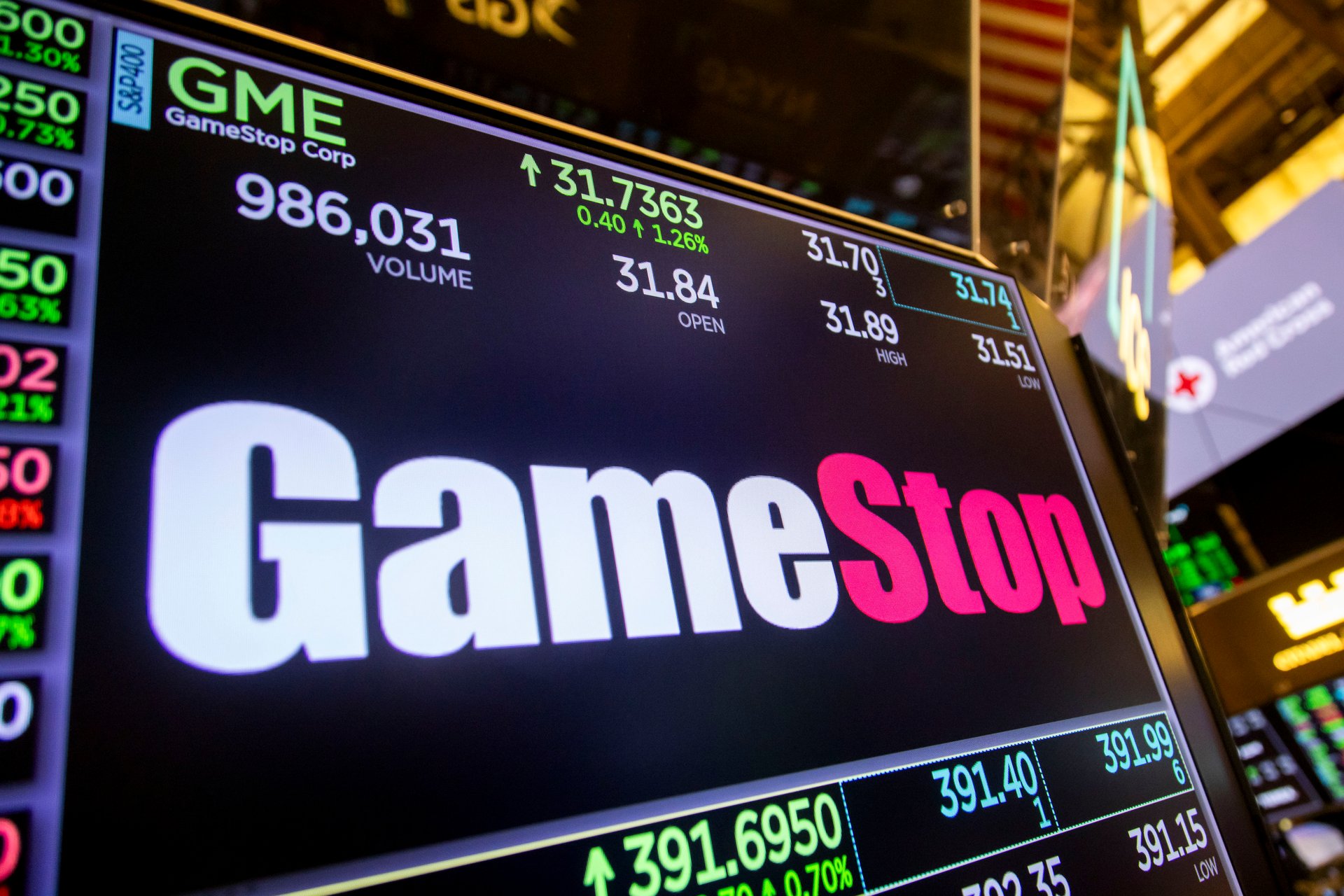Wall Street isn't buying GameStop's Bitcoin play — and the stock plunges 18%
GameStop wants to raise $1.75 billion to help fund the purchase of Bitcoin

Bloomberg / Getty Images
Investors aren’t sold on GameStop’s strategy to stockpile Bitcoin.
Suggested Reading
The ailing video game retailer unveiled plans on Wednesday to raise $1.75 billion via convertible notes to help fund the purchase of the cryptocurrency. Shares in GameStop were down more than almost 18% on Thursday morning.
Related Content
The proceeds from the offering will go toward general corporate purchases, including “making investments in a manner consistent with GameStop’s Investment Policy and potential acquisitions.”
While the statement made no explicit reference to cryptocurrencies, it’s assumed this is where some of the funds will be allocated. That's because GameStop bought 4,710 Bitcoin last month, worth more than half a billion dollars at current market prices. Moreover, the move aligns with a recent trend: several publicly traded firms have been tapping investors for billions via convertible notes in order to put Bitcoin on their balance sheets.
This includes Trump Media & Technology Group. Last month, it raised $2.5 billion to fund a cryptocurrency reserve. Shares in TMTG dropped almost 14% following the announcement.
There are currently 30 companies with Bitcoin reserves listed on the Nasdaq, with treasuries worth a combined total of more than $85 billion — about 2% of the coin’s total market cap.
The token has had staggering returns — up 60% in the past year, thereby boosting balance sheets for many companies. Meanwhile, the pitch for investors in the stock market is that treasuries provide exposure to crypto’s steep gains without needing to hold the assets.
Business intelligence company Strategy, formerly known as MicroStrategy (MSTR), is considered the blueprint. Its CEO Michael Saylor has spearheaded using stock sales and debt financing to build a Bitcoin war chest worth over $40 billion, a move that has made the firm the 40th largest on the Nasdaq 100 index.
GameStop’s attempt to cash in on the frenzy is just one of many efforts to find new revenue streams. The rise of online shopping and streaming services has plunged its brick-and-mortar business into relative obsolescence over the the past decade. Its shares declined 95% between 2013 and 2020.
In light of this demise, GameStop became a “meme stock” in 2021, a term for shares in ailing businesses that gain popularity among retail investors through social media. This all makes GameStop’s recent foray into crypto unsurprising. The appeal of meme stocks — volatility, anti-establishment, viral — is analogous to meme coins. Traders thus typically also trade crypto tokens, and GameStop has a cult-like status among the community.